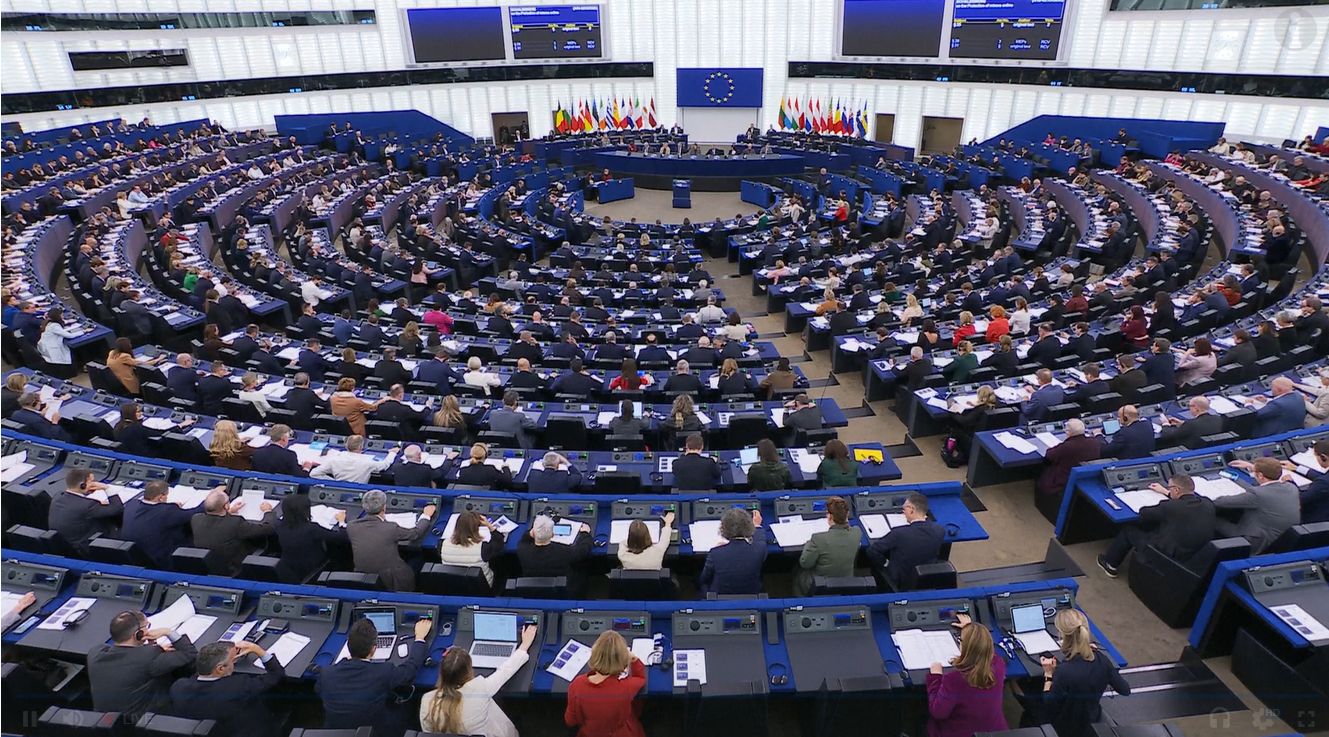
An external evaluation report on the EU-Morocco fisheries agreement 2019-2023 confirms that the agreement revolves, in its entirety, around Western Sahara.
Photo: Moroccan artisanal fishermen off the settler town of Lassarga, near Dakhla. @ElliLorz
A new document published by the EU Commission reveals to what extent the EU-Morocco fisheries agreement has been depending on the stocks offshore occupied Western Sahara.
The findings appear in a report which the EU Commission’s Directorate General for Fisheries recently released - a “retrospective and prospective evaluation of the Protocol to the Sustainable Fisheries Partnership Agreement (SFPA) between the EU and the Kingdom of Morocco”. The document was authored by Poseidon Aquatic Resource Management in collaboration with F&S Maritime Affairs, consultancy firms often relied on by the EU Commission to evaluate the technical, economic and scientific aspects of its fisheries agreements.
Find the document here [or download]
The evaluation only relates to the above-mentioned aspects of the Protocol, as it was commissioned to do. It does not relate to the ongoing legal proceedings on the Fisheries Agreement, in which a ruling is forthcoming, as the document explains in a footnote.
The study concludes that the fishing opportunities were only well utilised for so-called category 6 vessels, i.e. pelagic industrial trawlers. Under the Protocol, EU shipowners can apply for fishing opportunities in six different categories, corresponding to different types of fishing in different geographical areas. Category 6 concerns pelagic species. The area is geographically limited to the waters of occupied Western Sahara, not Morocco. The fishing opportunities (or licenses) available for the other 5 categories – some of which also applicable in Western Sahara – were significantly underused, according to the report. On average, only 22% of the licenses available in these 5 categories were used: only 24 vessels out of a maximum of 110 vessels authorised for fishing in category 1 to 5 took up the opportunities. It is of note that even in the underused categories (with exception of categories 1 and 2 which apply to Morocco proper), practically all catches were made in Western Sahara. These volumes are however very small compared to pelagic catches under category 6.
It is practically impossible to overstate the importance of category 6 fishing - fishing in Western Sahara - for the EU fleet. The Poseidon/F&S study reveals that of the total amount of catches made by the EU fleet under the Protocol between 2019 and 2023, 99% was made by industrial fishing vessels targeting small pelagic species, i.e. category 6 fishing – carried out exclusively in occupied Western Sahara.
That the agreement’s application to the occupied territory is in fact essential to the EU fleet, is also clear when the EU’s return on investment on this agreement is examined. The evaluation study concludes that every invested Euro generates almost €3,3 in return in direct and indirect value.
“The good use of fishing opportunities by the Protocol’s flagship category, category 6 of industrial fishing vessels targeting small pelagics, explains this result”, the study explains, adding that “this category accounts for 97% of the added value generated by the entire EU fleet under the current Protocol.”
The EU operators are making a profit as well: the Poseidon/F&S study quotes an annual turnover of around €90 million on average for the first two calendar years of the Protocol. 98% of that figure is attributable to category 6 fishing: pelagic fishing in occupied waters.
The money that Morocco receives under the agreement is also mostly spent in the occupied territory, where EU tax payers’ money is used for building up Morocco’s fish sector and on infrastructure projects. The agreement has a clause that stipulates that the money paid by the EU to Morocco for access to the fishing grounds, as well as the fees that EU fishing operators are to pay on top of that, should be invested by Morocco on projects to the socio-economic benefit of the ‘concerned populations’, i.e., those living in the areas where fishing takes place.
It thus comes as no surprise that 95.5% of the EU’s money for access was used in occupied Western Sahara, on projects that “concern the health sector (construction and equipment of a hospital), the training sector (construction of training centers), agriculture (irrigation), road and port infrastructure, and energy (hydroelectric dams, electricity distribution networks).”
On top of the access fees paid by the EU and the operators, the EU also provides ‘sectoral support’ under the agreement: funds specifically earmarked to develop Morocco’s fish sector. The evaluation includes an overview of how much of the sectoral support was spent in which "Moroccan" region, without offering insight as to how much was spent in Western Sahara. On the basis of the provided figures, WSRW has calculated that 75.55% of EU sectoral support was utilised to fortify Morocco’s fish sector in the land it holds under illegal occupation. Among other things, Morocco has modernised the artisanal fleet, strengthened its possibilities to commercialise fishing products (construction of fish markets, etc), developed aquaculture projects (docking infrastructure, pontoons, handling equipment… specifically in Dakhla Bay), purchased research vessels and surveillance vehicles, etc, for usage in the occupied territory.
It is of note that the EU Commission is fully aware that it is funding such projects on occupied territory, as it has to explicitly agree to the projects before any funding is released. Yet the only concern raised by the EU Commission, is that Morocco does not sufficiently advertise that these projects are carried out with EU funding.
Under the Protocol, EU vessels are obliged to land certain percentages of their catches in “local ports”. The data transmitted by Morocco to the EU indicates that category 4 vessels landed their catches exclusively in the port of Dakhla. For category 6 vessels, landings were distributed between the port Agadir (64% of landings on average) and the port of Dakhla (36%). This is remarkable, given the fact that 99% of the catches in this category are made in Western Sahara – yet 64% of the catches were landed in a port in Morocco. The new study explains that most of the catches that have been landed by EU vessels have not been sold to local processing industries – though one so-called RSW vessel did sell small pelagics to a processing plant in Dakhla. Most landed catches are however transported to the EU to be sold on the internal market, or are shipped to third countries.
Given the above, it is unsurprising that “the two parties and the EU fishing vessel owners consulted […] have expressed their wish that the Protocol be renewed”, as Poseidon/F&S study concludes. The study does not make a single reference to the position of the people with the sovereign rights to the waters where 99% of the agreement is implemented, the people of Western Sahara.
Controversially, the EU Commission asked Poseidon in 2022 to also evaluate a future protocol in Western Sahara under the same agreement. The consultancy firm included proposals for continued EU fisheries, even in the absence of an EU-Morocco fisheries agreement, with or without a protocol.
The EU-Morocco Fisheries Agreement has been declared illegal in its application in Western Sahara by the EU Court of Justice in 2018, as Morocco has no sovereignty or administering mandate over the territory and the deal did not have the consent of the Saharawi people. The EU Commission reacted to that ruling by negotiating with Morocco an amendment to the agreement so that it would henceforth explicitly refer to Western Sahara. Rather than seeking the consent of the people of Western Sahara, it undertook a consultation of Moroccan politicians and economic operators in the territory. For failing to seek the consent of the Saharawi people, the EU General Court again nullified this new agreement in Western Sahara. The appeal process, initiated by the EU Council and Commission, is ongoing. A final ruling is expected before the summer.
Since you're here....
WSRW’s work is being read and used more than ever. We work totally independently and to a large extent voluntarily. Our work takes time, dedication and diligence. But we do it because we believe it matters – and we hope you do too. We look for more monthly donors to support our work. If you'd like to contribute to our work – 3€, 5€, 8€ monthly… what you can spare – the future of WSRW would be much more secure. You can set up a monthly donation to WSRW quickly here.
EU Court reaffirms position on Western Sahara
Polisario has a case, but it should be pursued when the time is right, Court implies.
EU Court protects Western Sahara from EU-Morocco trade deal
The highest Court of the European Union this morning found that EU's trade agreement with Morocco cannot be implemented in Western Sahara.
Buying stolen goods is stealing: the Musical
See this great footage of the first ever flashmob musical against the plundering of Western Sahara, in Mercadona-supermarkets across Spain. Mercadona sells canned fish originating from occupied Western Sahara, under their store brand ‘Hacendado’.
These are the MEPs who voted for ignoring the CJEU
187 Parliamentarians voted to ignore the ruling of the CJEU, the interests of EU farmers, the rights of the EU consumers and the aspirations of the Saharawi people. Here they are.


